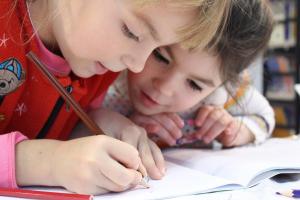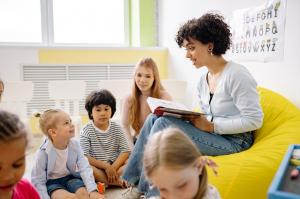The Power of Peer Collaboration in Writing: Building Creativity & Confidence in Key Stage One
Peer collaboration plays a crucial role in enhancing pupils' writing skills. As they work together, pupils can provide feedback, share ideas, and learn from one another. This collaborative approach fosters a supportive and inclusive writing environment that empowers children to engage actively in the writing process.
Benefits of Peer Collaboration in Writing
Collaborative writing offers numerous benefits for pupils. Firstly, it provides an opportunity for children to develop their writing skills by observing and learning from their peers. By seeing different writing styles and techniques, they can expand their repertoire of writing strategies. Studies have shown that pupils who engage in peer collaboration demonstrate improved writing fluency and accuracy.
Secondly, peer collaboration stimulates creativity and idea sharing. When children work together, they generate a diverse range of ideas, perspectives, and approaches to writing. This collaborative environment encourages pupils to think outside the box and explore innovative ways to express themselves. By bouncing ideas off each other, they can refine and develop their writing ideas, leading to richer and more compelling content.
Strategies for Fostering Peer Collaboration
To encourage peer collaboration in writing activities, teachers can implement various strategies. One effective approach is assigning group writing projects where children collaborate to create a shared piece of writing. This not only promotes teamwork and communication skills but also allows pupils to learn from each other's strengths and abilities.
Another strategy is peer editing and feedback. By providing clear guidelines and using structured peer feedback forms, pupils can give constructive criticism to their peers. This process not only improves writing skills but also enhances critical thinking and problem-solving abilities as pupils analyse and evaluate each other's work.
Additionally, teachers can incorporate collaborative brainstorming sessions before individual writing tasks. This allows the children to generate ideas collectively and provides a supportive environment for sharing and receiving input. By collaborating during the pre-writing stage, pupils can gain a deeper understanding of the writing topic and can produce more cohesive and well-developed pieces of writing.
Tips for Promoting a Supportive Writing Environment
Creating a supportive writing environment is crucial for fostering peer collaboration. Teachers can start by establishing clear expectations and ground rules for collaborative writing activities. This helps children understand the importance of active participation, respect for others' ideas, and constructive feedback.
It is also important to create a safe and inclusive space where all pupils feel comfortable sharing their writing. Encourage open-mindedness and celebrate diversity in writing styles, perspectives, and ideas. By valuing each pupil's contribution, you nurture a sense of belonging and increase engagement in the collaborative writing process.
Lastly, teachers should provide opportunities for reflection and self-assessment. Encourage pupils to reflect on their own writing process, as well as their experiences working with peers. This promotes metacognition and helps pupils become more self-aware of their strengths and areas for growth. Children can then set goals and take ownership of their learning, leading to improved writing outcomes.
Peer collaboration in writing activities offers invaluable benefits for children. By fostering a supportive and cooperative writing environment, pupils can enhance their writing skills, develop communication and teamwork abilities, and nurture creativity and critical thinking. Through peer collaboration, children can learn from each other, build confidence in their writing, and create a sense of community in the classroom. Embrace the power of collaboration and watch your pupils' writing skills soar!
Looking for more information on teaching Key Stage One literacy, lesson plans, top tips and great information?
